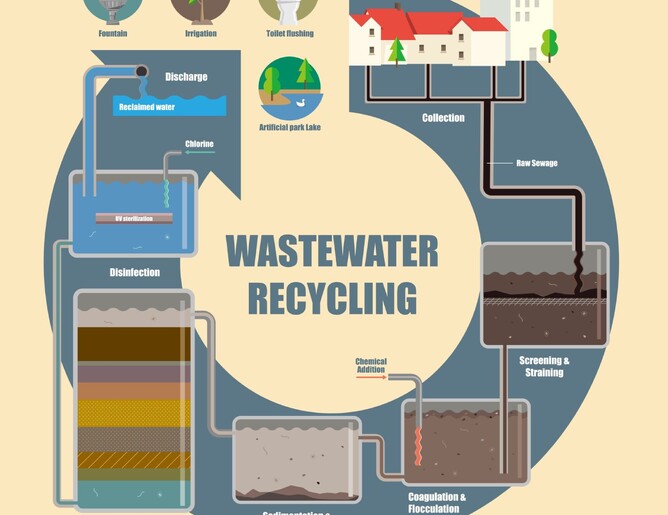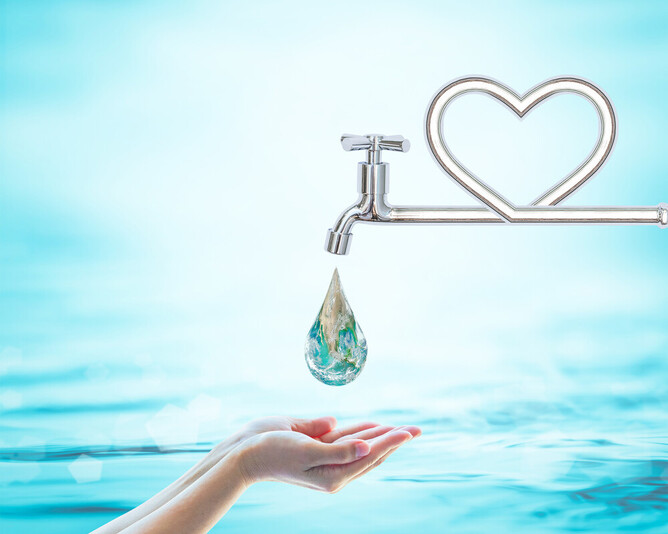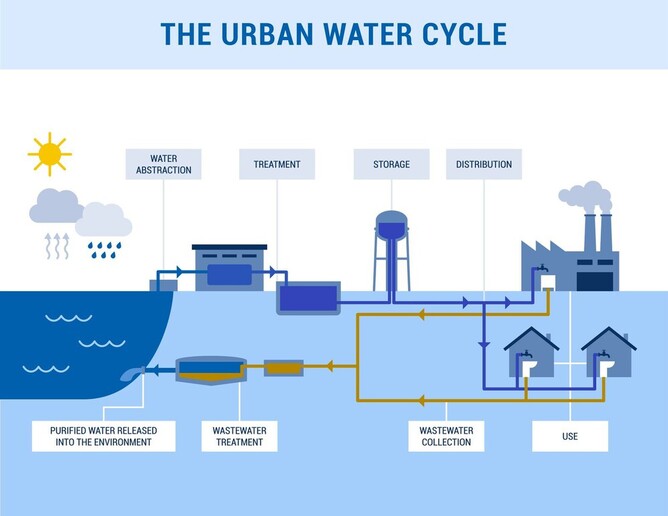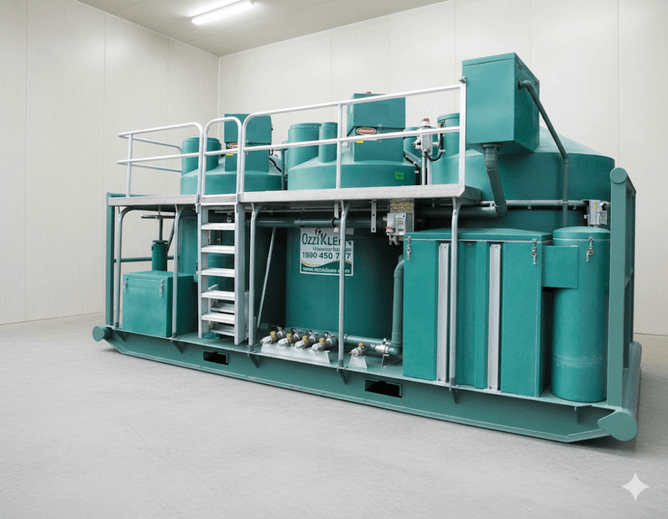For many businesses across New Zealand and Australia, wastewater treatment is seen as little more than a compliance obligation. Councils demand it, regulations enforce it, and operators tick the boxes to avoid fines. But what if wastewater could be more than just a regulatory hurdle?
What if it could actually become a tool to strengthen your bottom line, sharpen your sustainability credentials, and enhance your reputation?
That’s exactly what’s happening in forward-thinking industries today. Commercial wastewater treatment plants are no longer designed purely for disposal they’re built to deliver efficiencies, create opportunities, and even serve as a point of difference in competitive markets.
From wineries that recycle water to power their vineyards, to hotels marketing their eco-friendly practices to sustainability-minded guests, wastewater is being reimagined as a strategic asset.
The shift is clear: businesses that go beyond compliance and adopt custom wastewater treatment systems are gaining long term advantages. They’re cutting operating costs, reducing environmental impact, and demonstrating responsibility to customers, regulators, and investors alike.
In this article, we’ll explore how commercial wastewater treatment can move from being a background utility to a front-line advantage one that protects businesses while also helping them grow.
Cost Savings & Operational Efficiency
Cutting Costs Behind the Scenes
Wastewater treatment has long been viewed as an unavoidable overhead, but modern systems are flipping that script. By investing in commercial wastewater treatment plants designed for efficiency, businesses can reduce ongoing costs that often go unnoticed until they pile up.
For example, advanced treatment technologies now minimise sludge production, which means lower disposal fees. Automated dosing and aeration systems use energy more intelligently, trimming electricity bills. And with modular components, businesses avoid the expensive downtime that comes with large scale repairs.
Turning Waste Into Resource
Perhaps the biggest leap forward is in water reuse. With commercial water recycling systems, treated effluent can safely be redirected for tasks such as irrigation, dust suppression, or toilet flushing. Instead of paying twice once for fresh water and again for disposal businesses close the loop and save on both ends.
In industries like food processing, hospitality, and agriculture, these savings can add up to tens of thousands of dollars each year. For operations in drought-prone regions of Australia or water-sensitive zones in New Zealand, the value is even higher.
Efficiency That Pays Back
Modern custom wastewater treatment systems are not only more reliable but also designed with scalability in mind. This means they can expand alongside a business without requiring costly overhauls. The result is infrastructure that pays itself back over time, an investment rather than a liability.
The Bottom Line
When viewed through the lens of efficiency, wastewater treatment becomes more than a line item. It becomes a strategic decision. Businesses that embrace these systems are finding that the true cost of wastewater isn’t in the treatment itself but in the lost opportunities when you stick with outdated setups.
Sustainability as a Selling Point
Eco-Credentials Customers Actually Care About
Across New Zealand and Australia, “clean and green” isn’t just a slogan it’s an expectation. Tourists, diners, and even local councils are increasingly choosing to support businesses that show real environmental responsibility. And wastewater treatment is one of the most practical, measurable ways to demonstrate that commitment.
Hotels and resorts that highlight their eco-friendly wastewater treatment systems attract sustainability-minded travellers who value transparency.
Wineries and breweries that recycle water for vineyards or hops fields can proudly showcase their circular approach as part of their brand story. Even industrial operators are finding that greener processes give them an edge in securing council approvals or winning supply contracts.
From Compliance to Competitive Edge
Where once wastewater treatment was hidden away in the “operations” box, forward-thinking companies are bringing it front and centre in their marketing.
Promoting a commercial water recycling system isn’t just about bragging rights it’s about showing customers that the business is future-focused and community-minded.
In tight markets, that subtle but powerful message can be the deciding factor. A motel that proves it uses recycled water for landscaping may be chosen over one that doesn’t. A food producer that can point to reduced wastewater impacts might land a contract where others fall short.
Measurable Impact Matters
Unlike vague “green claims,” wastewater improvements come with data: litres saved, contaminants reduced, or energy conserved. These metrics can be woven into sustainability reports, marketing campaigns, or even packaging. Customers don’t just hear the promise they see the proof.
Building Trust Through Transparency
Modern consumers don’t just want low prices; they want to feel good about the choices they make. Businesses that invest in custom wastewater treatment systems can offer that peace of mind, winning loyalty that lasts longer than a single transaction.
Reputation & Customer Trust
When Wastewater Becomes Word of Mouth
In today’s digital world, one poor review can travel faster than a summer bushfire. For hotels, restaurants, caravan parks, and wineries, wastewater issues aren’t just an operational hiccup they’re a brand crisis.
A bad smell in the bathrooms or a backed-up system during peak season can undo years of careful reputation-building.
By contrast, investing in modern commercial wastewater treatment plants does more than solve a problem. It signals to customers that the business cares about hygiene, safety, and sustainability. And those values translate directly into stronger trust.
Reviews That Reflect Responsibility
Tourism and hospitality businesses live or die by online reviews. Guests are far more likely to recommend a venue that “felt clean and well cared for,” even if they never consciously think about wastewater systems.
In small Kiwi towns and Aussie regional hubs, reputation spreads fast being known as the place with dodgy drains is a label no one wants.
Winning Over Councils and Communities
It’s not just customers watching. Local councils and communities often keep a close eye on businesses, particularly in sensitive environments like coastal zones, wine country, or rural tourist towns.
Operators who demonstrate responsible wastewater management are more likely to win community support, avoid conflicts, and be viewed as trustworthy partners.
Reputation as a Long-Term Asset
Reputation isn’t built on advertising alone it’s built on consistent actions. A custom wastewater treatment system may not be glamorous, but its reliability underpins everything from guest comfort to food safety. Over time, these invisible investments create visible loyalty and brand equity.
In short, the way businesses handle wastewater is also the way they handle trust. Those that take it seriously gain reputations that last.
Innovation & The Future of Wastewater
Smarter Systems, Smarter Businesses
Wastewater treatment has moved well beyond the days of simple septic tanks. Today’s commercial wastewater treatment plants incorporate cutting-edge technology designed to make them more efficient, reliable, and sustainable. For businesses, that means turning a compliance necessity into a platform for innovation.
Automation and Real-Time Monitoring
Modern systems are often equipped with programmable logic controllers (PLCs) and IoT-enabled sensors. These tools allow operators to monitor flows, nutrient levels, and energy use in real time. Issues can be flagged before they escalate, reducing downtime and lowering the need for costly emergency callouts.
Water Recycling and Resource Recovery
The future of wastewater treatment isn’t just about managing waste it’s about reclaiming resources. Commercial water recycling systems can safely repurpose treated effluent for irrigation, landscaping, and even non-potable building uses. Some systems are now capable of nutrient recovery, capturing valuable by-products like nitrogen and phosphorus for agricultural reuse.
Built for Climate Resilience
As Australia and New Zealand face more droughts, floods, and regulatory scrutiny, businesses are seeking wastewater systems that adapt. Modular and scalable plants can expand as demand grows, while portable units provide resilience in disaster or construction scenarios. For industries that depend on reliability, this flexibility is a competitive edge.
From Utility to Differentiator
Wastewater treatment is quietly shifting from the background of business operations to the forefront of strategy. Companies that invest in custom wastewater treatment systems not only meet today’s compliance needs but also position themselves as leaders in sustainability and innovation. In industries where reputation and efficiency matter, that’s a game-changer.
Frequently Asked Questions
1. How are commercial wastewater treatment plants different from septic tanks?
Septic tanks are designed for small-scale residential use, while commercial wastewater treatment plants are engineered to handle larger, more complex flows. They use advanced processes like aeration, nutrient removal, and recycling, making them suitable for businesses, resorts, wineries, and industrial facilities.
2. Can wastewater systems really save businesses money?
Yes. Modern systems reduce sludge disposal costs, lower electricity use through smart controls, and often include water recycling features. This means less money spent on water bills and waste management, turning a compliance expense into an operational saving.
3. What role does sustainability play in wastewater treatment?
Eco-friendly wastewater treatment is increasingly a selling point. Businesses that recycle water or reduce their environmental footprint can use those achievements in sustainability reports, marketing campaigns, and branding. Customers and councils are both more likely to support businesses that demonstrate responsibility.
4. Are wastewater systems one-size-fits-all?
No. Custom wastewater treatment systems can be tailored to each site’s needs, whether that’s a small caravan park, a large industrial plant, or a growing residential subdivision. Modular designs also mean businesses can scale capacity over time without rebuilding from scratch.
5. Is wastewater treatment just about compliance?
Not anymore. While compliance is the baseline, modern wastewater management has become a way for businesses to improve efficiency, strengthen their reputation, and demonstrate leadership in sustainability. In competitive industries, those benefits often go well beyond the council’s checklist.
Conclusion: Wastewater as a Strategic Advantage
Wastewater treatment has traditionally been treated as a background obligation something businesses do to satisfy regulators. But as industries evolve, customer expectations rise, and environmental standards tighten, commercial wastewater treatment plants are stepping into the spotlight as real strategic assets.
The Triple Win: Savings, Sustainability, and Trust
Modern systems deliver measurable benefits in three key areas:
· Cost efficiency: reduced disposal fees, smarter energy use, and water recycling that lowers bills.
· Sustainability: eco-friendly processes that support brand credibility and meet rising consumer expectations.
· Reputation: reliable, hygienic systems that strengthen trust with customers, councils, and communities.
Together, these advantages go well beyond compliance they create long-term value.
Future-Proofing Through Innovation
With automation, modularity, and resource recovery now mainstream, custom wastewater treatment systems are positioned to help businesses adapt to growth, climate challenges, and stricter regulations. The companies that invest early aren’t just protecting themselves from risk they're setting themselves apart as leaders.
Where Businesses Can Turn
For organisations across New Zealand and Australia, wastewater doesn’t have to be a silent liability. Managed well, it becomes part of the sustainability story, the efficiency plan, and even the customer experience.
A Subtle Next Step
Forward-looking businesses exploring wastewater solutions will find providers in the region who specialise in scalable, eco-friendly systems. For example, at Drainpro we offer commercial systems designed not just to meet compliance but to deliver long-term performance and reliability.
Final Thought
In a world where every drop of water counts, treating wastewater as a competitive advantage isn’t just smart it’s essential. Businesses that see beyond compliance and embrace innovation today will be the ones customers, councils, and communities trust tomorrow.
Get in touch with us at Drainpro to discuss your commercial wastewater needs.
DrainPro Ph: 03 342 1278
Christchurch | Central Otago | Hamilton & Waikato | Auckland North/West | Tauranga & Bay of Plenty





